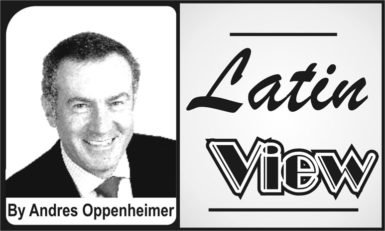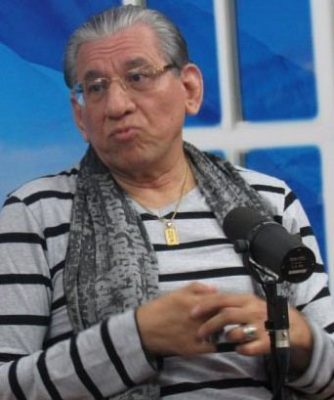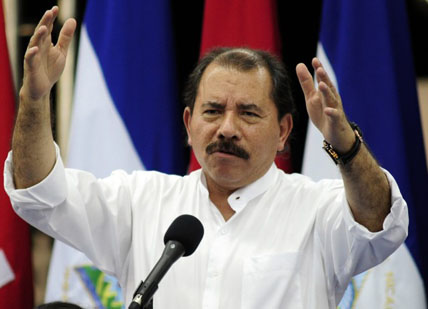
And I heard it from Ortega’s brother himself during my lengthy telephone interview with retired Gen. Humberto Ortega, a historic commander of the 1978 Sandinista revolution against rightist dictator Anastasio Somoza — and the Nicaraguan president’s younger brother.
Humberto Ortega was the founder of the Sandinista People’s Army after the Sandinistas took power in 1979. He was their top military strategist, served as defense minister and led the Sandinista military in the war against the U.S.-backed contra rebels in the 1980s.

After the 1990 election of a non-Sandinista democratic government, Humberto Ortega presided over the conversion of the Sandinista army into a professional institution. Today, he describes himself as a centrist, and is known to be in contact both with his brother, Daniel, and with the country’s Roman Catholic Church and business people who oppose the regime. Humberto Ortega told me that the killings of the student protesters recently was the breaking point in his brother’s regime.
“There’s a “before” and “after” the recent events,” Humberto Ortega told me. “This government cannot go back to what it was before this crisis. It can’t go back to its previous monopolistic and authoritarian ways of governing,”
He added that “the presidential couple” — as Nicaraguans refer to the president and his powerful wife, Vice President Rosario Murillo — “don’t have a future, much like the current political opposition. The only way to get out of this crisis will be through a national agreement and dialogue brokered by the church.”
Last week, nearly 50 former Sandinista guerrillas and officials, including commander Monica Baltodano, signed a statement denouncing the Ortega regime as a “bloody dictatorship” which was directly responsible for the recent bloodbath. Other former top Sandinista government officials, such as Ernesto Cardenal, Luis Carrion, Victor Hugo Tinoco and Sergio Ramirez, long ago broke ranks with their former comrade, accusing him of becoming a Somoza-like dictator.
The Nicaraguan church hierarchy is meeting with the government, student leaders and the business community to seek common ground to start a national dialogue.
Students are demanding President Ortega’s resignation be a precondition for the dialogue, while business leaders are asking for an electoral reform and the restoration of the independence of the Supreme Court and other key institutions.
Government critics also are demanding that the Ortega government allow the Inter-American Human Rights Commission (IAHRC) into the country to investigate the recent killings of student protesters. Since Ortega controls Nicaragua’s police and justice system, only an international probe will be able to do a credible investigation, they say.
Asked about these demands, Humberto Ortega did not want to go into specifics, but he said that, “There must be a transition, a soft landing, a constitutional exit.” He added that Nicaragua needs “a dialogue in which it can be decided whether there can be early elections” before the 2021 presidential contest.
“The outcome of the national dialogue should be that nobody ever again in the history of Nicaragua will have the monopoly on power that this government has had, that nobody will be able to co-opt power such as this presidential couple has done,” he concluded.
There is nothing wrong with a church-brokered national dialogue to restore peace in Nicaragua, but President Ortega might be supporting it just to win time, hoping that the current wave of protests will subside.
That’s why government critics are right to demand that any church-brokered dialogue include as preconditions a commitment from all sides to carry out electoral reform, invite an IAHRC probe, and a deal to discuss the possibility of early elections. When Daniel Ortega’s own former guerrilla colleagues are saying, “Basta!,” he should understand that it’s time to go, and to let a peaceful restoration of democratic rule proceed.






